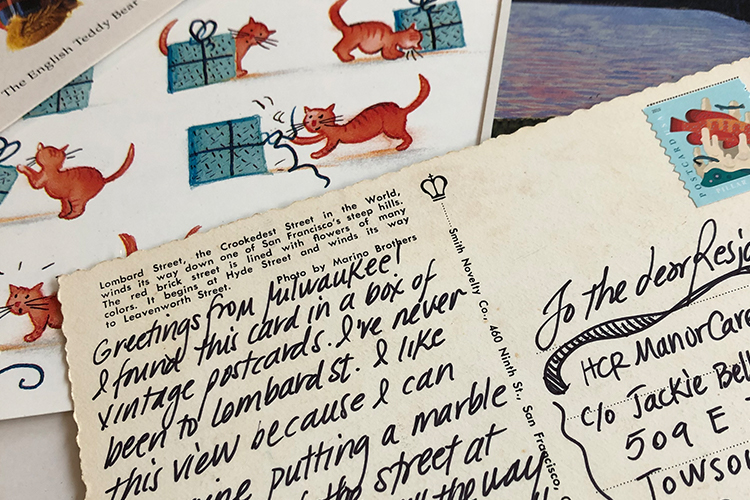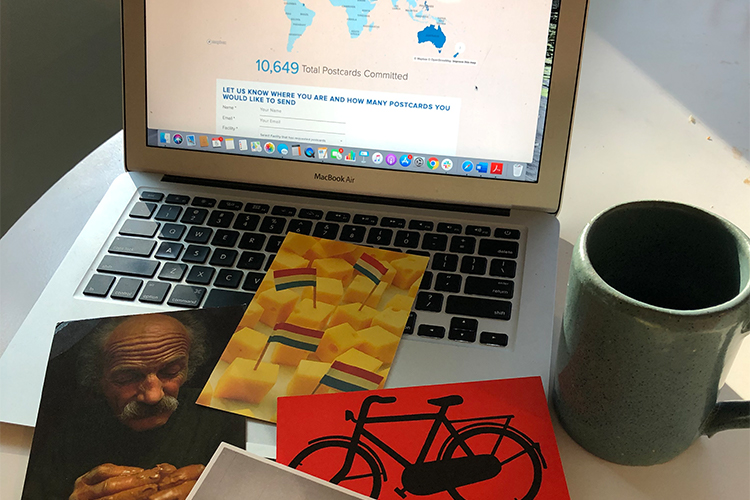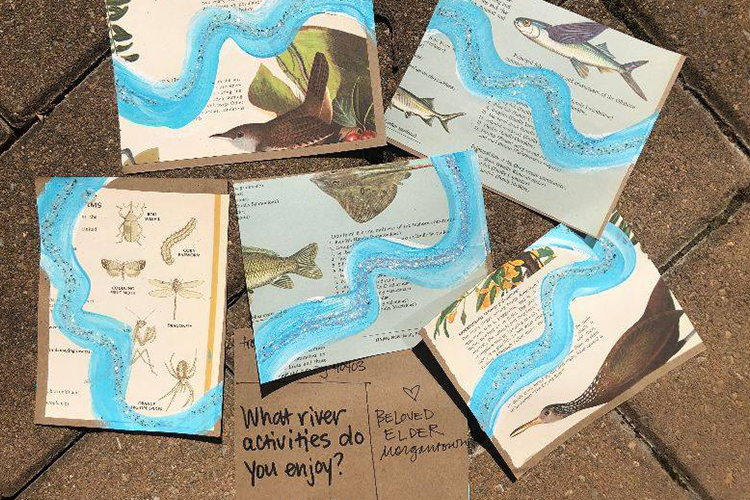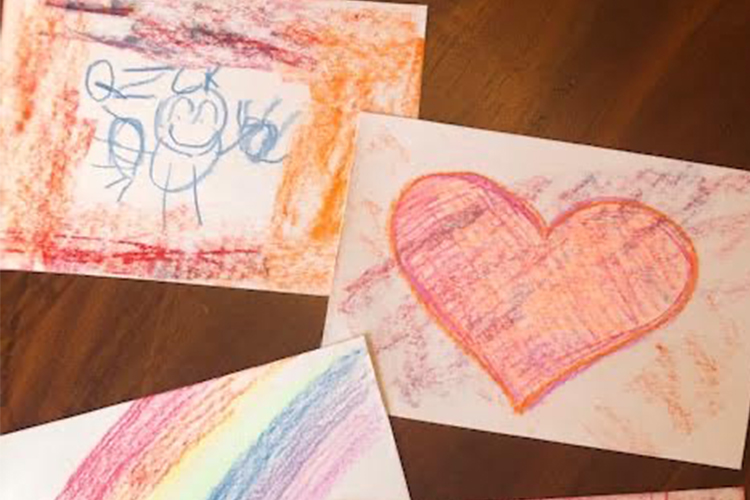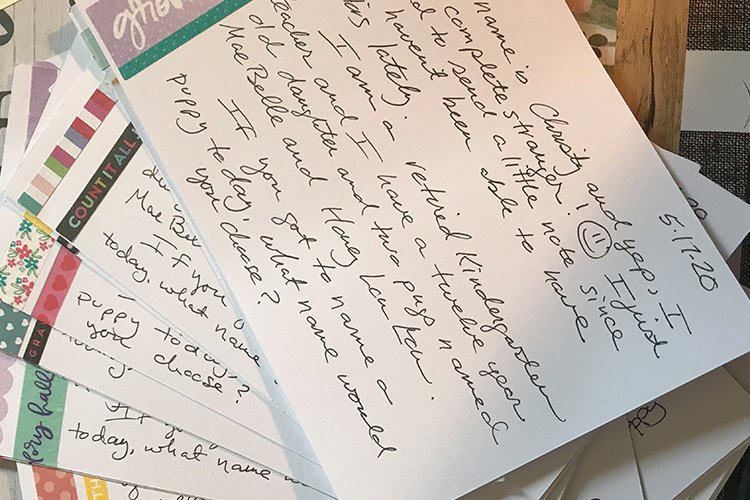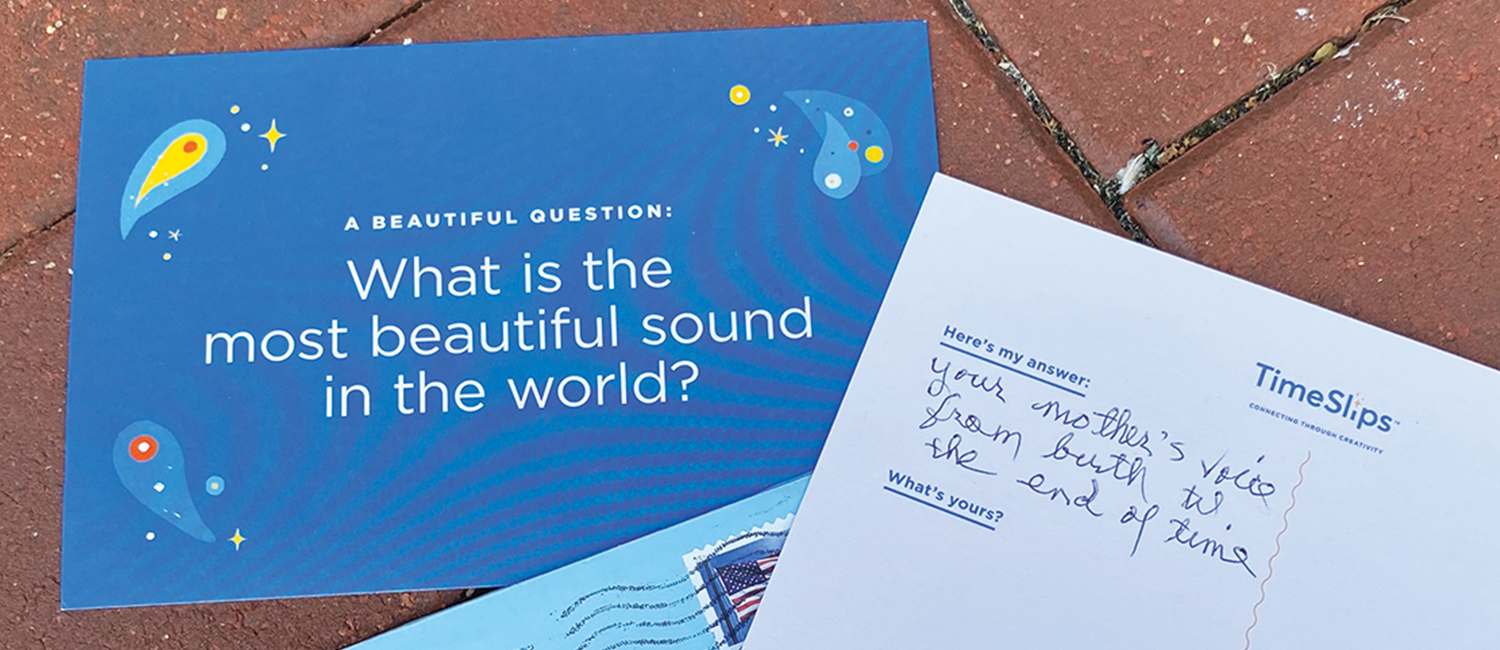
The power of connecting through imagination
When COVID-19 sparked lockdowns, care homes for the elderly became secluded places, barring visitors and even group activities. No family members were allowed, no volunteers and no group dining. “Lockdown was so thorough and cruel,” says Anne Basting, an English professor in the College of Letters & Science, whose research often involves working with care facilities. “An intense isolation was happening.”
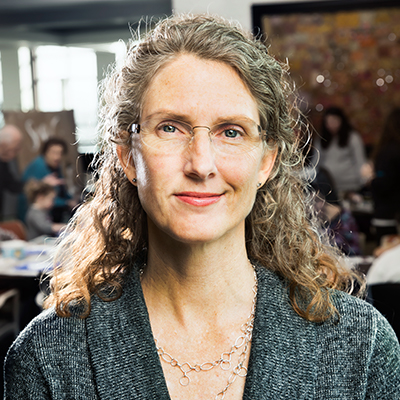
To respond, Basting’s TimeSlips organization mobilized people to send 150,000 postcards to scores of care homes. TimeSlips grew from Basting’s research into using participatory arts to help older people, particularly those with Alzheimer’s disease and dementia. The work earned her a prestigious MacArthur Fellowship in 2016.
Written on each postcard was one of many thought-provoking “Beautiful Questions,” such as, “What is the most beautiful sound in the world?” To reply, people called a phone number and left a message. TimeSlips also provided the public with a do-it-yourself method for mailing cards to care facilities all over the world. It posted a global map and a list of addresses on its website with examples of the types of cards to send.
By engaging people with memory loss in creative activities and storytelling, their focus shifts to invention and spontaneity instead of memory and their limitations. The benefits extend to people without memory loss, too, by fostering more humane and interactive ways to care for older adults. The approach is detailed in Basting’s new book, “Creative Care: A Revolutionary Approach to Dementia and Elder Care.”
The pandemic has frustrated Basting and TimeSlips. They’ve trained almost 1,000 facilitators in the professor’s Creative Care techniques, and many now can’t get into facilities to serve elders. So to reach elders at home, Basting organized the Milwaukee Tele-Stories Project, which paired 10 local artists with 10 local seniors each, people recruited by Eras, a local senior-serving nonprofit. TimeSlips trained the artists in storytelling techniques and doing Creative Care over the phone, and they started calling the 100 seniors on a regular basis, using Beautiful Questions to start conversations.
Visual and multimedia artists, poets, performance artists and a dancer joined the project to find meaningful work forging connections benefiting both elders and facilitators. It ran until November 2020, when the artists shared legacy projects inspired by the interactions. The expanded pilot evaluation is promising, showing a reduction in loneliness of 41% for participating elders.
